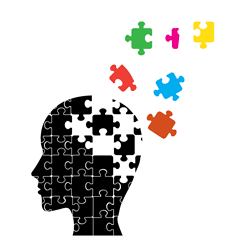
On the website Science Direct, Chinese researchers Qiu-Yue Wang and Dong-MeiLi discuss the effects of skilled art therapy upon seniors with dementia. Because the therapy doesn’t include traditional tools such as pharmaceuticals or more formal psychological techniques, this form of treatment is affordable for senior residence facilities at little additional cost.
Language skills are often challenged as we grow older. Whether the patient’s disability is a physical one, or a mental one, humans are accustomed to achieving resolution of problems through the use of words to express the problem, and to work through to the solution. By using self-expression through the use of line drawings or color, the patient is able to express negative emotions and obtain psychological relief without achieving a more difficult verbalization of their angst.
This process not only relieves the patient of some of the anxiety, but it relieves the frustration of the caregivers as well. The study of art therapy evolved from the art world, and gradually, over decades, merged psychological analytical techniques with artistic interpretations of works created by dementia patients. The resolution (by the supervised patient) of the dissonance within the artworks had a corresponding effect on the mood and social skills of the patient.
The techniques of the therapy still need more structure, and the study of skilled art therapy is still in its formative stages, but the process of introducing memory patients to artistic skills is well-documented as being beneficial.
A similar therapy is reminiscence therapy, where people suffering from dementia are exposed to their memories from a happier or more understandable time.
The website Daily Caring outlines ways in which seniors can be effectively engaged in reminiscence therapy. The idea is to transport the patient mentally to a place in their memory that was more understandable to them. Remember to steer them away from the probability of depression or futility by focusing on their initial reactions to a topic or scenario.
The editorial staff of Daily Caring suggests music, photographs or keepsakes, smells or favorite foods, and arts or crafts as initial stimuli for a trip down memory lane.
Involvement in intuitive forms of communication like artistic expression and personal memories can be a low-cost strategy for keeping your seniors happier for a longer period of time. The presence of such activity on your activity schedule gives confidence to prospective customers.